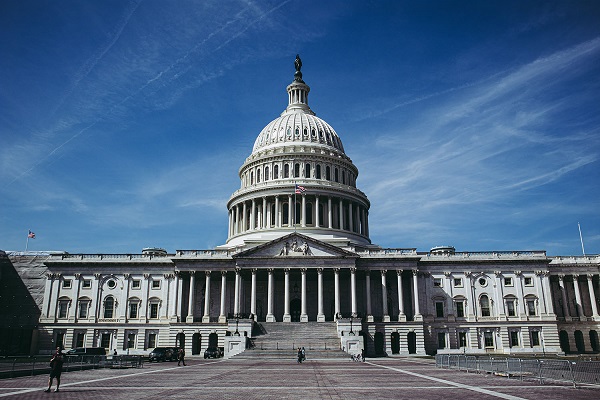Telecommuting, adopted out of necessity, will remain an option for some Capitol Hill staffers, even after covid-19 is completely vanquished.
To remain competitive, some lawmakers will want to provide their aides with additional flexibility, said Bradford Fitch, president and CEO of the nonpartisan Congressional Management Foundation, a nonprofit “dedicated to helping Congress and its members meet the evolving needs and expectations of an engaged and informed citizenry.”
In recent years, the Washington metropolitan area has had some of the longest commutes in the country. On average, it takes workers 43 minutes to travel from home to office, according to a 2019 study by the Metropolitan Washington Council of Governments.
With remote working, “you get two extra hours a day, either to work or, frankly, to relax and exercise or spend time with your family. That’s a real big bonus to employees,” he said.
As the pandemic recedes, people are being summoned back.
In accordance with guidance from the Office of the Attending Physician and the U.S. Centers for Disease Control and Prevention], staffers and interns who are fully vaccinated are not required to wear masks; and non-fully vaccinated staff are required to wear masks when within six feet of others in the office or outside of the office while on official business. Social distancing continues to be encouraged at the Capitol.
Remote work options will help lawmakers retain experienced, high quality employees, according to Fitch, who added a lack of flexibility will make it harder for workplaces to remain competitive — even at the Capitol Hill.
“I know one member of Congress who lost their legislative director to another office. She just went across the hall to go work for someone who offered her work-from-home options sometimes,” Fitch said. “They’re definitely going to be having to integrate work from home options for their staffs, and they can do this in a very effective way.”
Mark Strand, president of the Congressional Institute, says remote work will be easier when Congress isn’t in session.
“I think you’ll be able to do some … teleworking during the recesses, especially if you’re writing letters or you’re doing research. Between the internet and everything else, why not do that from home if you can,” he said.
It won’t work nearly as well, he said, when the legislative branch is in town, because in politics, face time matters.
As the head of an organization that plans retreats for lawmakers and staffers, Strand said he’s spoken with chiefs of staff who are worried about retaining employees in a post-COVID, post-Jan. 6 U.S. Capitol riot world.









